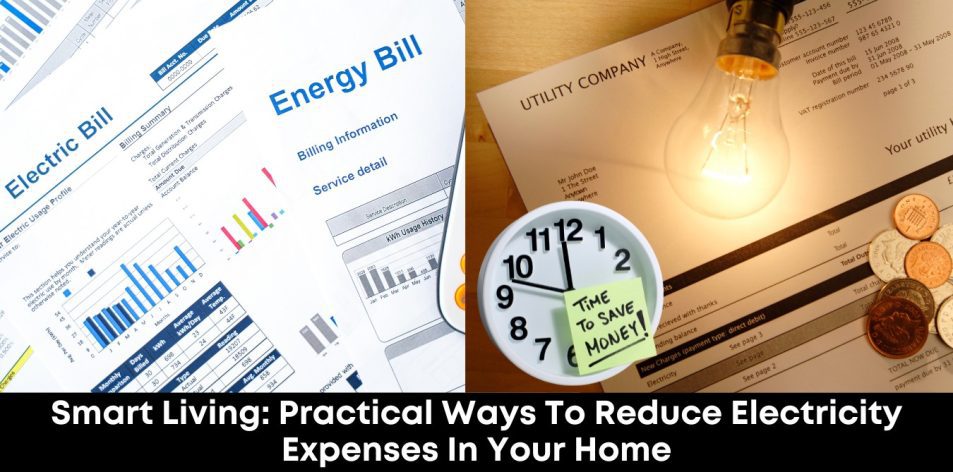Lowering Your Bills and Embracing Energy Efficiency for a Brighter Future
In every household, electricity forms a significant portion of monthly expenses. With rising costs and a growing awareness of environmental impact, finding effective ways to reduce electricity consumption is not just a financial benefit but also a step towards sustainable living. This article offers practical and actionable strategies that individuals and families in Kenya can adopt to significantly lower their electricity bills, making their homes more energy-efficient and comfortable.
Daily Habits for Immediate Savings
1. Switch Off and Unplug
This is perhaps the simplest yet most effective habit. Many appliances continue to draw “phantom” or “vampire” power even when turned off but still plugged into the socket. This includes phone chargers, TVs, microwaves, and computers.
- Action: Make it a habit to switch off lights when leaving a room, and unplug electronics from the wall when they are not in use or on standby mode. Consider using power strips with on/off switches to easily cut power to multiple devices at once.
2. Embrace Natural Light and Airflow
Kenya’s abundant sunshine and pleasant climate offer a natural advantage for reducing electricity use.
- Action: During the day, open curtains and blinds to let in as much natural light as possible. This reduces the need for artificial lighting. Open windows and doors in the morning and evening to allow for natural ventilation, reducing reliance on fans or air conditioning.
3. Optimize Water Heating
Electric water heaters (geysers and instant showers) are among the biggest consumers of electricity in many homes.
- Action:
- Take shorter showers instead of long baths.
- Adjust the thermostat of your water heater to a comfortable but not excessively hot temperature.
- Consider insulating your hot water tank and pipes to minimise heat loss.
- For new installations or significant upgrades, explore solar water heaters. These can drastically cut your electricity bill by using the sun’s energy to heat water.
4. Smart Laundry Practices
Washing machines and tumble dryers (if used) can be energy intensive.
- Action:
- Run your washing machine with a full load whenever possible.
- Use cold water for washing clothes, as heating water accounts for a large portion of the energy consumed by a washing machine.
- Whenever weather permits, air-dry clothes on a line or drying rack instead of using a tumble dryer.
- Clean your dryer’s lint filter after each load for better efficiency.
5. Efficient Cooking Methods
Your kitchen appliances also contribute to your electricity bill.
- Action:
- Use lids on pots and pans while cooking to trap heat and cook food faster, reducing energy consumption.
- Utilise pressure cookers for dishes that require longer cooking times.
- For small portions, consider using a microwave or induction cooker which are generally more energy-efficient than traditional electric ovens or stovetops.
- Defrost food in the refrigerator overnight instead of using a microwave or hot water, which saves energy.
Longer-Term Investments and Upgrades
6. Upgrade to Energy-Efficient Lighting
Traditional incandescent bulbs are energy hungry. Switching to more efficient alternatives can lead to significant savings.
- Action: Replace incandescent bulbs with LED (Light Emitting Diode) bulbs. LEDs consume up to 80-90% less energy and have a much longer lifespan, offering substantial long-term savings despite a slightly higher upfront cost.
7. Choose Energy-Efficient Appliances
When purchasing new appliances like refrigerators, washing machines, or air conditioners, energy efficiency should be a top priority.
- Action: Look for appliances with high energy efficiency ratings, often indicated by star labels (EPRA in Kenya uses a star rating system). More stars mean lower electricity consumption for the same function. While they might have a higher initial price, the energy savings over their lifespan quickly offset this.
8. Optimize Refrigeration
The refrigerator runs 24/7, making it a major energy consumer.
- Action:
- Ensure the refrigerator door seals are tight and free of gaps.
- Avoid opening the refrigerator door unnecessarily.
- Allow hot food to cool down before placing it inside.
- Keep the coils at the back clean and dust-free to maintain efficiency.
- Set the temperature to the recommended level; excessively low temperatures waste energy.
9. Improve Home Insulation and Sealing
Preventing heat gain (or loss in cooler areas) can significantly reduce the need for cooling (or heating).
- Action: Check for and seal any air leaks around windows and doors using weatherstripping or caulk. Consider adding insulation to your roof or walls if feasible, as proper insulation can reduce heating and cooling costs significantly.
10. Explore Solar Power Solutions
For a truly transformative reduction in electricity expenses, consider investing in solar photovoltaic (PV) systems.
- Action: Solar panels convert sunlight directly into electricity, dramatically reducing your reliance on the national grid and offering long-term savings, especially with Kenya’s abundant sunshine.
A Culture of Conscious Consumption
Ultimately, reducing electricity expenses in your home is a combination of adopting smart habits, making informed purchasing decisions, and considering strategic upgrades. By cultivating a culture of conscious energy consumption, not only will your household enjoy significant financial savings, but you will also contribute to a more sustainable and efficient way of living for all.

